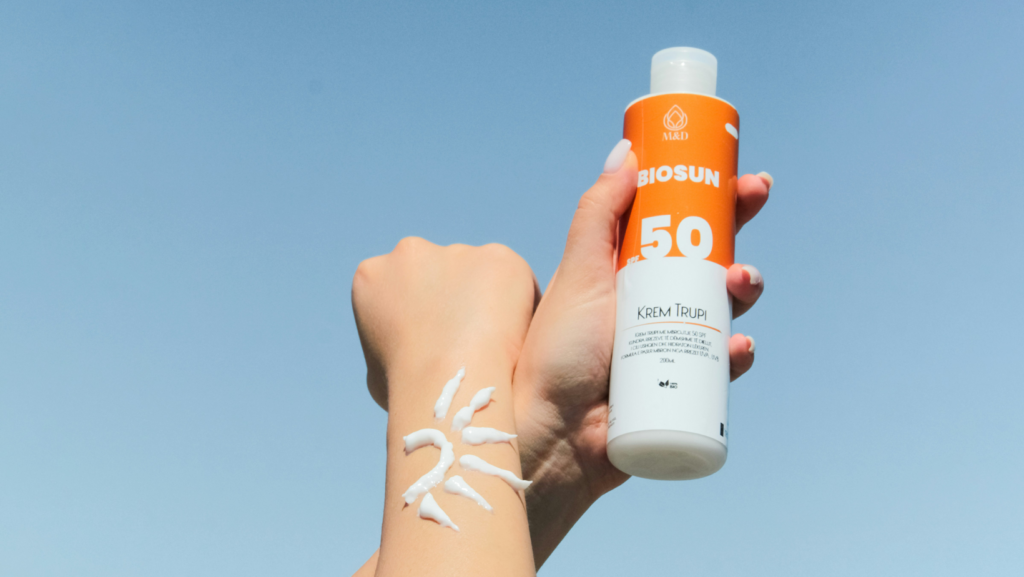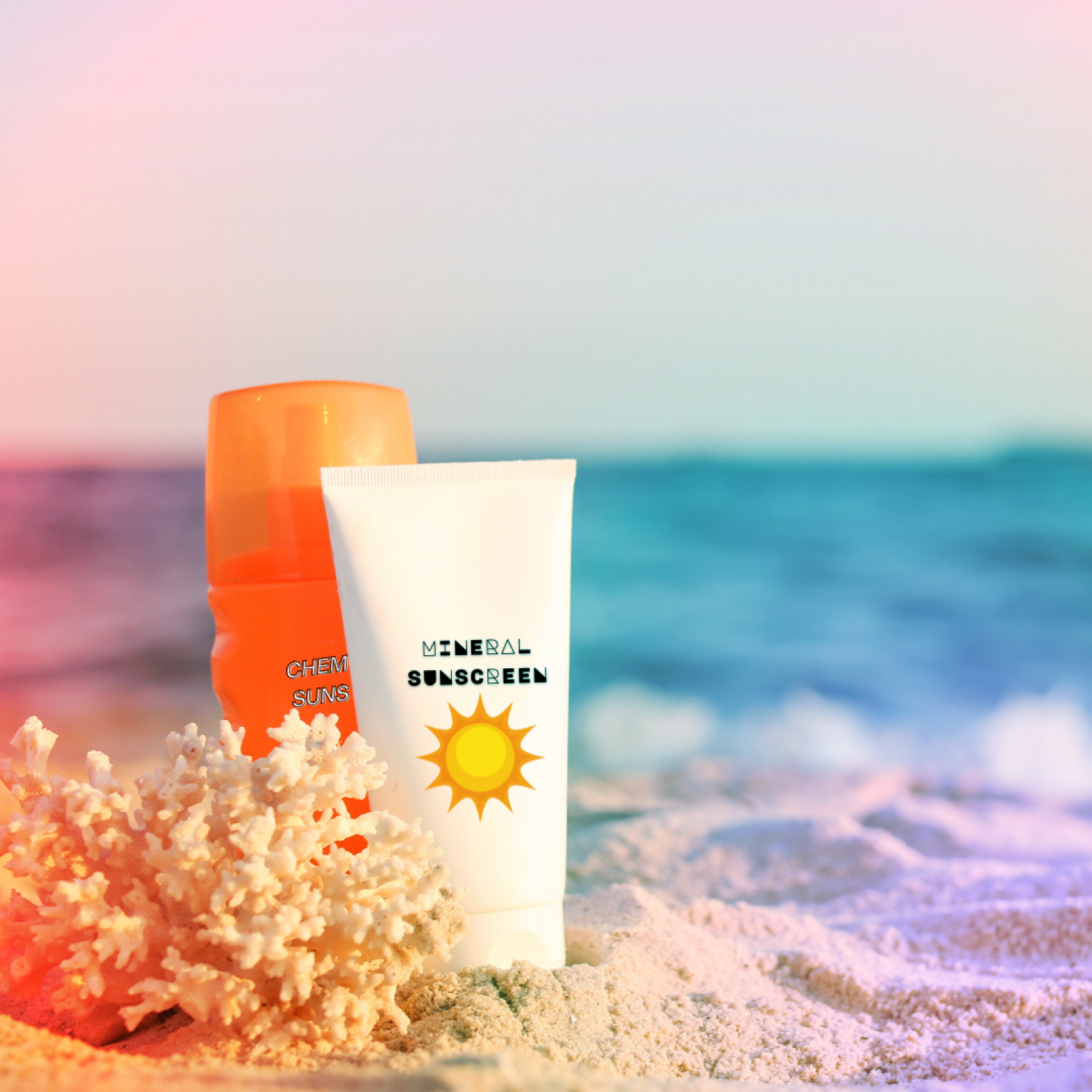Introduction:

When it comes to protecting our skin from the harmful effects of the sun, sunscreen is an essential tool. However, with the numerous options available on the market, it can be overwhelming to choose the right one for you. Two common types of sunscreens are chemical and mineral sunscreens. If you’re like me, I didn’t really know the difference until super recently, so I wanted to share what I have learned with whoever is interested! In this blog post, we will explore the differences between these two types, how they work, and the pros and cons of each, to help you make an informed decision. Let’s lather up and dive in!
Chemical Sunscreens:
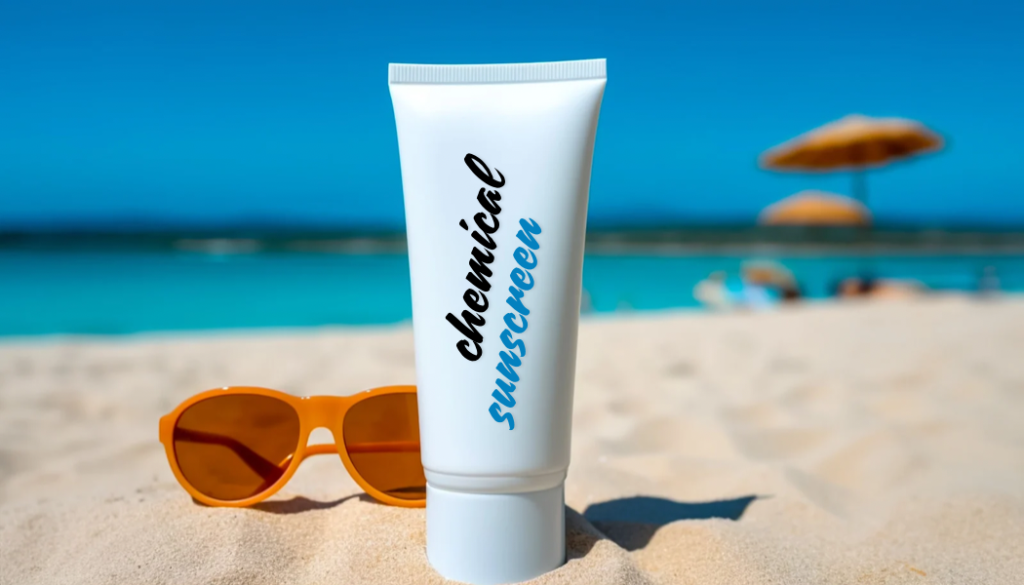
How They Work
Chemical sunscreens, also known as organic sunscreens, work by absorbing the sun’s UV rays and converting them into heat, which is then released from the skin. These sunscreens contain a variety of chemical compounds, such as avobenzone, oxybenzone, and octinoxate, among others.
The Advantages
One of the advantages of chemical sunscreens is their ability to provide broad-spectrum protection, shielding the skin from both UVA and UVB rays. They are also typically lightweight and easy to apply, often leaving no visible residue on the skin. Additionally, chemical sunscreens tend to be more water-resistant than their mineral counterparts, making them a suitable choice for outdoor activities and water sports.
The Disadvantages
However, chemical sunscreens have some drawbacks as well. Some individuals with sensitive skin may experience irritation or allergic reactions to the chemical ingredients. Additionally, some studies have raised concerns about the potential hormonal effects of certain chemicals found in these sunscreens, although more research is needed to fully understand the extent of these effects.
Mineral Sunscreens:
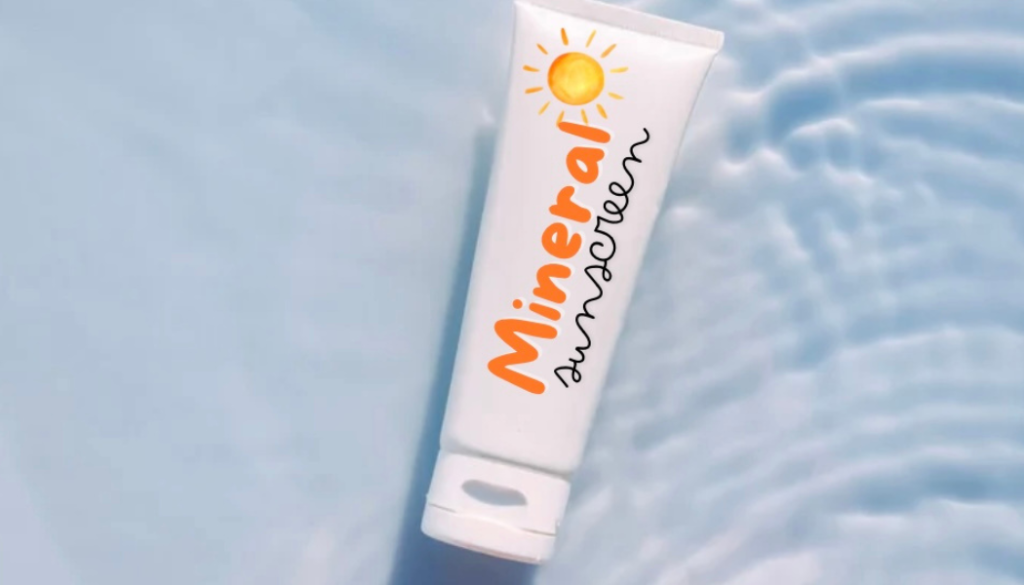
How They Work
Mineral sunscreens, also known as physical sunscreens, work by creating a physical barrier on the skin’s surface that reflects and scatters the sun’s UV rays. The active ingredients in mineral sunscreens are typically zinc oxide and titanium dioxide.
The Advantages
One of the main advantages of mineral sunscreens is their gentle and non-irritating nature, making them suitable for individuals with sensitive skin or those prone to allergies. They are also considered to be more environmentally friendly, as they do not contain chemicals that may harm marine life or coral reefs.
Mineral sunscreens provide immediate protection upon application, as they do not require any time to be absorbed into the skin. They are also less likely to cause stinging or burning sensations, making them a preferred choice for individuals with rosacea or other skin conditions.
The Disadvantages
However, mineral sunscreens may have some limitations. They can leave a white cast on the skin, which may be more noticeable on individuals with darker skin tones. They can also be thicker and more difficult to spread compared to chemical sunscreens. However, advancements in formulation have led to the development of mineral sunscreens that are easier to apply and blend into the skin.
Choosing the Right Sunscreen For You:
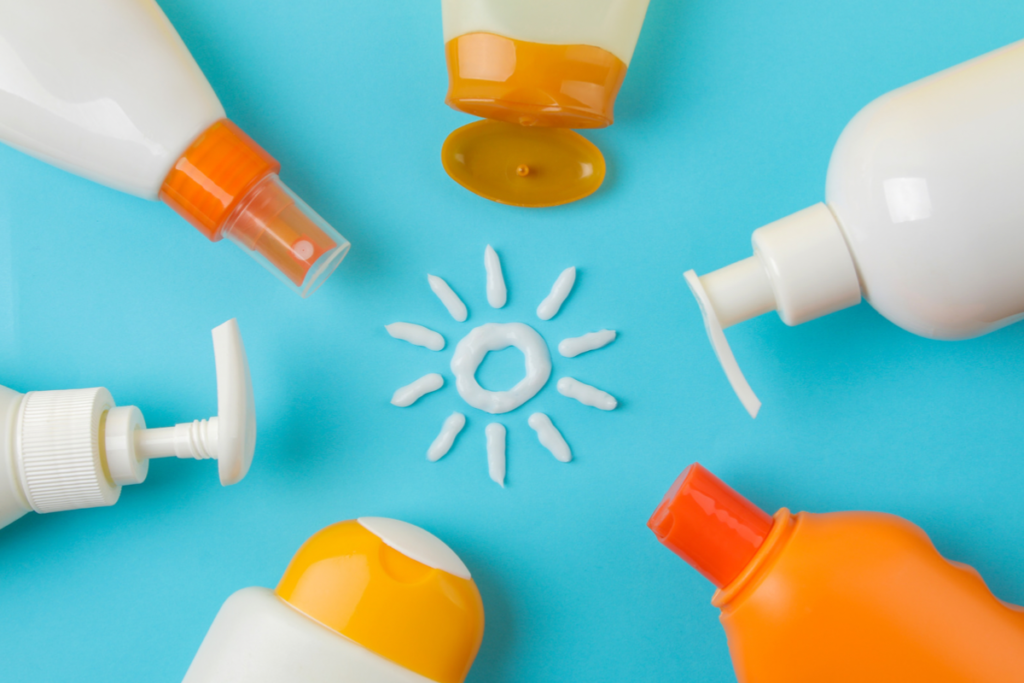
When it comes to choosing the right sunscreen for you, there are several factors to consider:
Skin Type:
Consider your skin type and any specific concerns you may have. If you have sensitive skin or are prone to allergies, a mineral sunscreen may be a better option. If you have oily or acne-prone skin, look for oil-free or non-comedogenic options.
Protection Level:
Check the SPF (Sun Protection Factor) of the sunscreen. SPF measures the level of protection against UVB rays. For adequate protection, choose a sunscreen with an SPF of 30 or higher.
Water Resistance:
If you plan on swimming or participating in water activities, opt for a sunscreen that is water-resistant.
Personal Preference:
Consider factors such as texture, scent, and application method. Some individuals prefer lightweight and easily absorbed sunscreens, while others may prefer the feel of a thicker cream.
Specificities:
- CHILDREN + PREGNANT WOMEN
Because chemical sunscreens are partially absorbed into the bloodstream, dermos recommend children and women expecting stick with mineral sunscreens!
Ultimately, the most important factor is consistent and proper application. Regardless of whether you choose a chemical or mineral sunscreen, it is crucial to apply it generously and reapply every two hours or more frequently if sweating or swimming. If you were to ask most dermatologists they would tell you that neither chemical or mineral sunscreen are perfect. Both have their advantages and disadvantages.


Conclusion:
Understanding the differences between chemical and mineral sunscreens can help you make an informed decision when it comes to protecting your skin from the sun’s harmful rays. Both types have their advantages and disadvantages, and the right choice depends on your individual needs and preferences. Whether you opt for a chemical sunscreen for its broad-spectrum protection or a mineral sunscreen for its gentle nature, the key is to find a sunscreen that you will use consistently and reapply as needed. Remember, protecting your skin from the sun is essential for maintaining its health and preventing sun damage.
